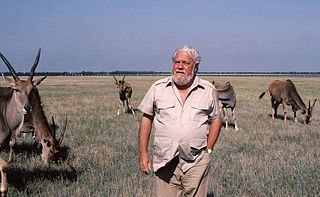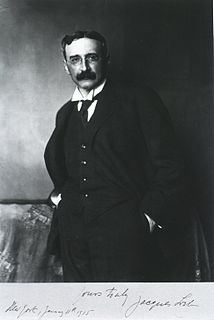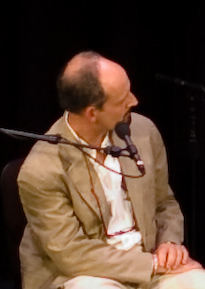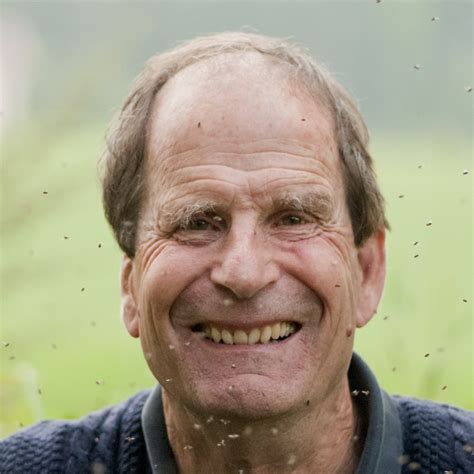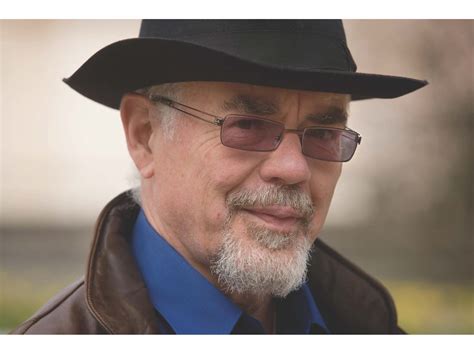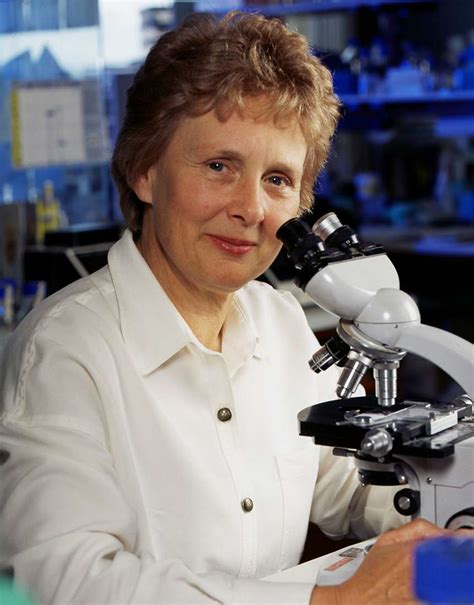A Quote by Rachel Carson
Only within the 20th Century has biological thought been focused on ecology, or the relation of the living creature to its environment. Awareness of ecological relationships is - or should be - the basis of modern conservation programs, for it is useless to attempt to preserve a living species unless the kind of land or water it requires is also preserved. So delicately interwoven are the relationships that when we disturb one thread of the community fabric we alter it all - perhaps almost imperceptibly, perhaps so drastically that destruction follows.
Quote Topics
Almost
Also
Alter
Attempt
Awareness
Basis
Been
Biological
Century
Community
Conservation
Creature
Destruction
Disturb
Ecological
Ecology
Environment
Fabric
Focused
Follows
Interwoven
Kind
Land
Living
Modern
Only
Perhaps
Preserve
Preserved
Programs
Relation
Relationships
Requires
Should
Species
Thought
Thread
Unless
Useless
Water
Within
Related Quotes
Humanity is a biological species, living in a biological environment, because like all species, we are exquisitely adapted in everything: from our behavior, to our genetics, to our physiology, to that particular environment in which we live. The earth is our home. Unless we preserve the rest of life, as a sacred duty, we will be endangering ourselves by destroying the home in which we evolved, and on which we completely depend.
We have a very old conservation movement, particularly in the United States, which has focused on campaigns to protect endangered species: the spotted owl, the old-growth forest. But usually it stops there. To me, biodiversity is the full spectrum. Species conservation is not only about wilderness conservation. It?s also about protecting the livelihood of people even while changing the dominant relationship that humans have had with other species. In India, it?s an economic issue, not just an ecological one.
You cannot begin to preserve any species of animal unless you preserve the habitat in which it dwells. Disturb or destroy that habitat and you will exterminate the species as surely as if you had shot it. So conservation means that we have to preserve forest and grassland, river and lake, even the sea itself. This is vital not only for the preservation of animal life generally, but for the future existence of man himself - a point that seems to escape many people.
One of the anomalies of modern ecology is the creation of two groups, each of which seems barely aware of the existence of the other. The one studies the human community, almost as if it were a separate entity, and calls its findings sociology, economics and history. The other studies the plant and animal community and comfortably relegates the hodge-podge of politics to the liberal arts. The inevitable fusion of these two lines of thought will, perhaps, constitute the outstanding advance of this century.
Scientists themselves readily admit that they do not fully understand the consequences of our many-faceted assault upon the interwoven fabric of atmosphere, water, land and life in all its biological diversity. But things could also turn out to be worse than the current scientific best guess. In military affairs, policy has long been based on the dictum that we should be prepared for the worst case. Why should it be so different when the security is that of the planet and our long-term future?
While ants exist in just the right numbers for the rest of the living world, humans have become too numerous. If we were to vanish today, the land environment would return to the fertile balance that existed before the human population explosion. Only a dozen or so species, among which are the crab louse and a mite that lives in the oil glands of our foreheads, depend on us entirely. But if ants were to disappear, tens of thousands of other plants and animal species would perish also, simplifying and weakening land ecosystems almost everywhere.
Faced with the widespread destruction of the environment, people everywhere are coming to understand that we cannot continue to use the goods of the earth as we have in the past ... [A] new ecological awareness is beginning to emerge which rather than being downplayed, ought to be encouraged to develop into concrete programs and initiatives.




